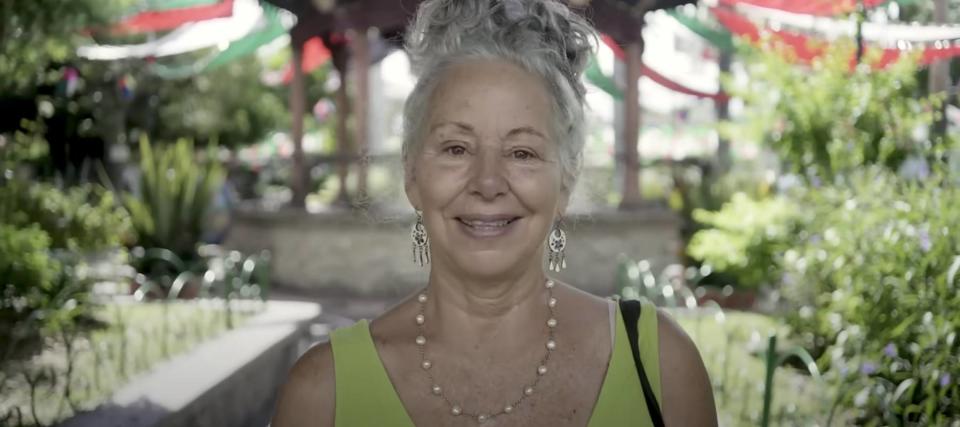This retiree, 68, pays $460 in rent a month to live in Mexico — how living abroad can unlock affordability

At 50, Janet Blaser made a bold move. Tired of her precarious career in California, the former journalist and author packed her bags and moved to Mexico in 2006.
Now, at 68, Blaser enjoys a comfortable retirement in San Antonio Tlayacapan, living in a two-bedroom, one-bathroom cottage, where she pays $460 a month in rent. She supports herself through Social Security, freelance work and royalties from her book sales. Blaser has found a lifestyle that is affordable with a sense of fulfillment.
Don't miss
Car insurance premiums in America are through the roof — and only getting worse. But 5 minutes could have you paying as little as $29/month
Lock in juicy quarterly income through this $1B private real estate fund — even if you’re not a millionaire. Here’s how to get started with as little as $10
5 minutes could get you up to $2M in life insurance coverage — with no medical exam or blood test
Located within an hour of Guadalajara, Blaser’s home is in close proximity to medical care, an international airport and major retailers like Costco and Home Depot — making it the ideal destination for her next chapter in life.
“Everything I need is within reach,” she wrote in an article for CNBC’s Make It.
But while living abroad has offered Blaser a more comfortable and affordable life, the decision to relocate comes with its own set of considerations. Here’s what you should know before taking the plunge.
A comfortable, low-cost lifestyle
Retiring in a tropical paradise may sound like a dream, but it’s becoming a realistic option for many Americans, especially those with flexible work arrangements.
According to the Department of State, over 760,000 Americans receive Social Security — including retirement, disability and survivor benefits — while living abroad. One of them is Blaser, who says she collects less than $1,000 per month in Social Security. In addition, she supplements her income with occasional freelance work and royalties from her book sales, earning an extra $400 to $500 monthly.
On top of her rent, Blaser says she pays about $12 per month for electricity, $30 for internet and $17 for a phone plan that includes free international calls. Groceries cost between $300 and $320.
For comparison, in California, the average rent for an apartment hit $2,555 as of July, according to RentCafe. Crowd-sourced database Numbeo also shows the cost of living in Mexico, including rent, is around 52% more affordable than the U.S. So, based on Blaser’s monthly income of around $1,500, she wouldn’t be able to afford the same lifestyle back home as she does now.
Read more: These 5 magic money moves will boost you up America's net worth ladder in 2024 — and you can complete each step within minutes. [https://moneywise.com/managing-money/how-to-earn-money/money-moves-to-make-right-now?throw=C2HALF_streamline)
&placement_syn=placement_2&native_creative_id=295&targeting_group=215
“Retiring abroad is easier and more affordable than ever before,” Jenniefer Stevens, executive editor of International Living, told Forbes.
According to International Living, a couple can live a modest yet comfortable lifestyle in Mexico on a monthly budget of $1,500 to $2,000, per Forbes. Blaser’s experience seems to support this.
Medical costs, which are a concern for many retirees, also appear to be significantly lower. Doctor’s visits, Blaser says, cost around $60.
Risks of retiring abroad
Even though Blaser’s move to Mexico helped her cut living costs dramatically, retiring overseas isn’t a guaranteed financial win.
Currency fluctuations can play a big role in your purchasing power. While the value of the U.S. dollar has remained relatively stable, its share of global reserves has dropped, indicating a global shift away from the greenback, according to the IMF.
Additionally, U.S. expats are still subject to U.S. tax laws, meaning you’ll need to file federal taxes no matter where you reside. As the IRS points out, “if you are a U.S. citizen or resident alien, your worldwide income is generally subject to U.S. income tax, regardless of where you are living.”
If you qualify as a tax resident for the country you reside in, you may have to file tax returns there as well. However, there may be a tax treaty between that country and the U.S. Navigating multiple tax systems at the same time can be complicated, though, and may require the services of a tax professional in order to avoid potential double taxation.
And don’t count on Medicare to cover you while abroad. You’ll need to either get private health insurance or find out if you qualify to enroll in your country’s public care system.
Retiring overseas can be an enticing option, but it’s essential to consider the full financial picture before packing your bags.
What to read next
Cost-of-living in America is still out of control — use these 3 'real assets' to protect your wealth today, no matter what the US Fed does or says
'It's not taxed at all': Warren Buffett shares the 'best investment' you can make when battling rising costs — take advantage today
82% of Americans are missing out on a savings account that pays over 10 times the national average
This article provides information only and should not be construed as advice. It is provided without warranty of any kind.